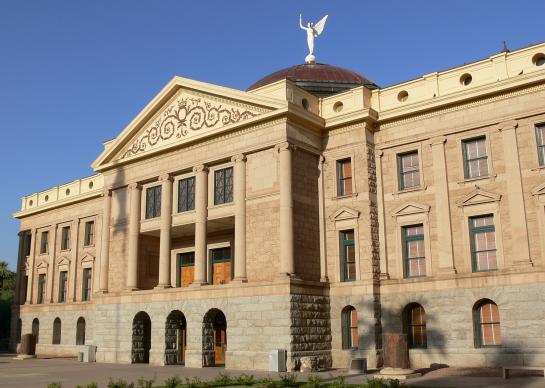What to Expect in AZ Legislature in 2023

Arizona state government is being remade as the 2023 legislative session nears. Incoming Governor Katie Hobbs and other statewide officials are shaping their administrations, and a new legislature will take the oath of office on January 9.
After 14 years of Republican control of the legislature and the Governor’s Office, Arizona policymaking will now be divided between a Democratic Governor and a Republican-led legislature. In both the House and Senate, Republicans have just a one-vote majority. These dynamics will create many opportunities for bipartisan cooperation, but they will also complicate negotiations on key priorities like the state budget.
Several other factors will shape this legislative session:
- New faces. Due to retirements and surprising losses for incumbents in the 2022 elections, almost half of the 90 legislators are new to the Capitol this year. That’s an unusual rate of turnover that will give brand new legislators a chance to really impact the session, especially since the narrow margin of Republicans’ majority means every vote matters on every issue.
- New leaders. Both the House and Senate have new leadership teams for Republican and Democratic caucuses. So far, House and Senate Democrats are on the same page with their policy priorities, but Republicans may have to find common ground. House Speaker Ben Toma (R-Peoria) wants to focus on traditional Republican priorities like tax policy and regulatory reform; Senate President Warren Petersen (R-Gilbert) has been a leader in the legislature’s focus on election procedures and ballot recounts.
- Big Divides. It’s not just leadership teams that might find themselves at odds over priorities this year. In the recent elections, voters sidelined some politically moderate legislative voices and chose candidates from the more extreme sides of Republican and Democratic politics. Legislators will have to address diverging priorities within their own caucus in addition to bridging disagreements between political parties.
Issues on the Horizon
The issues sure to be considered at the Capitol this year include:
- Agency directors, who have just been appointed by Governor Hobbs but require confirmation from a majority of the Senate. Every Governor appoints administrators to implement their plan for state government; with a Republican majority in the legislature and a Democrat in the Governor’s Office, those agency leaders will face tough questioning from lawmakers.
- Ballot measures, which Republican lawmakers may use to take issues directly to the voters in an effort to enact policies that Governor Hobbs will not sign into law.
- Budget will be the focus of many policy discussions throughout the session. There’s a growing surplus in state revenues again, though legislative economists warn that the growth is slowing. Disagreement within the Republican caucus led to a bipartisan budget agreement last year; Republican leaders will have to find bipartisan cooperation again this year as they negotiate with Governor Hobbs.
- Education and how it’s funded, how much teachers are paid, and how students are taught. Some lawmakers will seek additional resources for schools and school facilities, while others will pursue stricter limits on how schools treat transgender students. The first and most high-profile education debate will be about the state’s expenditure limit. A supermajority of legislators must agree on how to waive or alter that limit on school spending before March, or schools will have to decrease their budgets by $1.4 billion. The debate about Empowerment Scholarship Accounts will continue, as well. Republicans expanded ESAs to all students last year, and now they hope to increase the amount of funding available for every student. Democrats have pledged to continue fighting increases to the ESA program, which they believe diverts funding away from public school districts.
- Taxes, and who pays how much for what. In recent years, policymakers have significantly reduced individual income taxes; some Republicans want to do the same for corporate income taxes or property taxes. Some Democrats want to eliminate tax cuts and credits that benefit specific industries. The Senate President wants to eliminate taxes on groceries and rental properties. These discussions will all unfold in the context of the state budget and how to allocate existing resources.
Key Dates
January 9: Session begins
January 30: Last day to introduce Senate bills
February 6: Last day to introduce House bills
February 17: Last day to hear bills in first chamber committees
March 24: Last day to hear bills in second chamber committees
April 18: 100th day of session